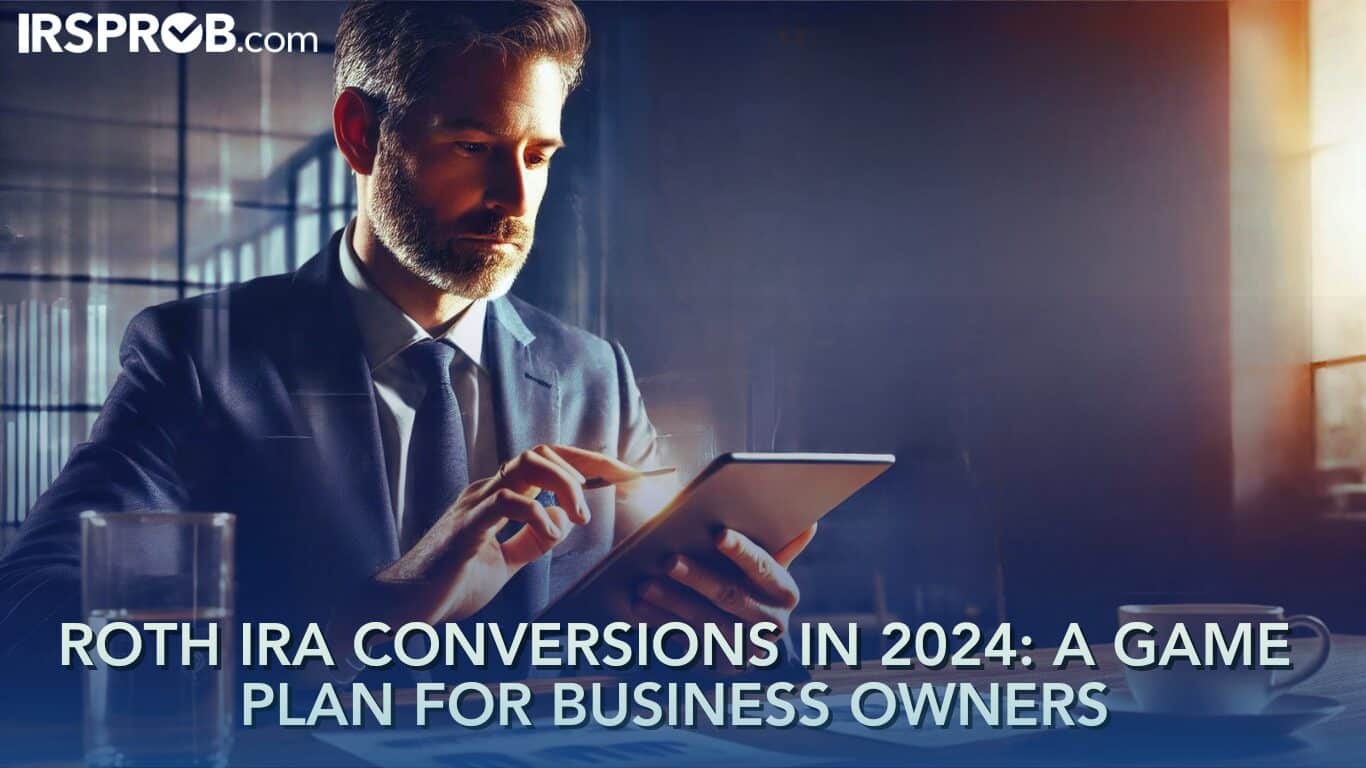
As business owners, managing personal finances can be just as important as running a successful company. One strategy that can help ensure a financially secure retirement is utilizing Individual Retirement Accounts (IRAs). Among the most powerful options is the Roth IRA, particularly through Roth IRA conversions. Let’s break down the essentials of converting a traditional IRA to a Roth IRA, what it means for your taxes, and how to leverage this tool effectively in 2024.
What Is a Roth IRA Conversion?
A Roth IRA conversion allows you to transfer funds from a traditional IRA into a Roth IRA. Why make this switch? The main advantage lies in the tax benefits: while traditional IRA withdrawals are taxed as ordinary income, Roth IRA withdrawals in retirement are tax-free. This can be particularly appealing if you expect to be in a higher tax bracket later in life.
Converting now could allow you to pay taxes on your IRA today at a potentially lower tax rate, and enjoy tax-free growth on your retirement investments.
Key Considerations for Business Owners
- No Income Limits for Conversions: Unlike direct Roth IRA contributions, which have income limits, there are no such restrictions on conversions. This opens up the door for high-income business owners to take advantage of the tax benefits a Roth IRA offers.
- Tax Implications of Conversion: When you convert a traditional IRA to a Roth IRA, the converted amount is considered taxable income for that year. For example, if you convert $50,000 from your traditional IRA in 2024, that amount will be added to your taxable income. If you had previously taken a tax deduction on those contributions, you’ll owe ordinary income taxes on the converted funds. This can result in a hefty tax bill, so it’s important to plan carefully and possibly spread the conversion over multiple years.
- Backdoor Roth IRAs: If your income exceeds the Roth IRA contribution limits in 2024 (e.g., $240,000 for married filing jointly), you can use a backdoor Roth IRA strategy. This involves making a non-deductible contribution to a traditional IRA and then converting it to a Roth IRA. Since the initial contribution wasn’t tax-deductible, you’ll only owe taxes on any earnings before conversion, making it a viable option for high-income earners.
Why Business Owners Should Consider Roth IRA Conversions
For business owners, tax planning is key to maximizing profits and ensuring long-term financial health. Here are a few reasons why converting to a Roth IRA could be advantageous:
- Future-Proofing Against Tax Increases: The current tax rates are historically low, but there’s no guarantee they’ll stay that way. Converting your traditional IRA now and paying taxes at today’s rates could save you money in the long run, especially if taxes rise in the future.
- Estate Planning Benefits: Roth IRAs can play a valuable role in estate planning. Since Roth IRAs do not require required minimum distributions (RMDs) during the owner’s lifetime, they allow your investments to grow tax-free for a longer period. This makes Roth IRAs an excellent tool for passing wealth on to heirs, who will benefit from tax-free distributions.
- Tax-Free Retirement Withdrawals: Unlike traditional IRAs, where withdrawals are taxed as ordinary income, Roth IRA withdrawals in retirement are tax-free. This can be particularly beneficial for business owners who might sell their businesses or have other income streams in retirement.
- Flexibility for Business Owners: If your business income fluctuates, you might have years where your taxable income is lower than usual. These years present a great opportunity to convert your traditional IRA to a Roth IRA, allowing you to pay less in taxes on the converted amount.
Timing Your Roth IRA Conversion
The timing of your Roth IRA conversion can have a significant impact on your taxes. Here are a few scenarios where conversion might make sense:
- A Year with Lower Income: If you anticipate a year with lower-than-usual income (perhaps due to a business downturn or a major expense), it may be a good time to convert, as the tax hit will be smaller.
- Before Selling Your Business: If you’re planning to sell your business, consider converting your IRA before the sale. Once your business is sold, you may enter a higher tax bracket, making the conversion more expensive.
Potential Drawbacks
While the benefits of a Roth IRA conversion are significant, there are potential downsides to consider:
- Immediate Tax Bill: Converting a large amount from a traditional IRA can push you into a higher tax bracket, resulting in a larger tax bill. It’s important to consult with a tax professional to strategize the conversion and avoid unpleasant surprises.
- No Recharacterization: In the past, if you changed your mind after converting to a Roth IRA, you could undo the conversion (a process known as recharacterization). However, starting in 2018, recharacterization of Roth IRA conversions is no longer allowed. Once you convert, it’s permanent.
By taking advantage of a Roth IRA conversion, business owners can better position themselves for a financially secure retirement. Understanding the timing and tax implications is crucial to maximizing the benefits. Always consult with a tax advisor to determine the best strategy based on your unique financial situation.







